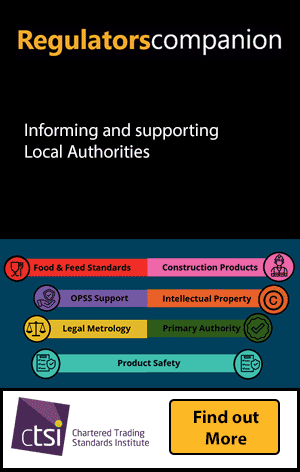Association for Project Management
|
|
Reflections on the dynamic conditions for project success
Blog posted by: Annie Mirza, 22 Oct 2021.

Ahead of the publication of the APM report Dynamic Conditions for Project Success, we caught up with Dr David Eggleton and Professor Nicholas Dacre who reflect on the process and challenges of completing a high-profile research project amidst a pandemic.
Early on professor Dacre and Dr Eggleton were both based in the Science Policy Research Unit (SPRU) at the University of Sussex, however whilst Dr Eggleton was finishing up his PhD they never got to meet in person until 2018. Professor Dacre then moved to the University of Southampton as the director of the Advanced Project Management Research Centre, which saw the ongoing collaboration between both universities.
During this time both were engaged in developing and submitting a number of research grant applications based on their shared passion for project management research and policy development. So when the APM project success tender was released, it was the perfect opportunity to examine fundamental dynamic conditions which could help support and enhance project outcomes. The project on projects had begun and many of the themes they explored for the research became key tools in helping them achieve project success.
The study involved a thorough review of the relevant literature, interviews with a cross-section of 35 project professionals to understand these different dynamic conditions, and was further supported by a survey that eventually attracted more than 1000 respondents. The aim was to undertake in-person interviews, however during the same period the UK went into the first of three national lockdowns.
Interpersonal skills and agility
The demands of the national lockdown forced the research team to adapt both professionally and personally, much like the rest of the project profession. A big challenge was working with new team members that hadn’t met
“Our recruitment and selection process for the two research assistants had to be completed entirely remotely and we anticipated major challenges with creating a sense of camaraderie amongst the team,” shares Dr Eggleton. “We needn’t have worried – our scrum meetings were a highlight of the week, the research assistants said they found moving tasks on the agile board to the ‘done’ column a much-needed source of dopamine”.
It was possible to build a good working relationship with the team remotely with openess and regular conversations. It was of course no longer possible to conduct in-person interviews which was challenging, especially when at the time, we were so used to meeting people and using a video call seemed strange. The team had to demonstrate their agility, changing the original plan to respond to the dynamic situation.
“We had to rely on Zoom and Microsoft Teams for the majority of our communication,” says professor Dacre. “The experience was unexpectedly liberating, for example by offering remote interviews we discovered that we could complete many more sessions each week in contrast to travelling throughout the country; equally we were able to secure access to senior project professionals who were also adapting their strategies at the same rate.”
Knowledge and technology
Finally, the survey was built. It was created entirely digitally by front-ending the work on the basis that if the questions and structure were right then the rest of it should follow a logical framework.
“Ironically the part of the project that we initially thought would be most challenging, the survey, actually proved to be much simpler than anticipated,” shares Dr Eggleton. “We already had major concerns around achieving the 1000 responses target as we had spoken with colleagues in our respective departments and been told that response rates to surveys could be as low as 1 per cent. We certainly didn’t like the idea of emailing 100,000 project professionals to hit our scope. We also worried that many wouldn’t want more screen-time given that ‘Zoom fatigue’ had entered the lexicon.
“We called a lot of our own in-house survey experts when we were designing the survey so that the leakage rate (ie the percentage of people who start the survey but don’t complete it in full) would be as low as possible. Eventually, the survey was launched by APM and disseminated to their members, with a number of respondents increasing on a daily basis.”
Team ethos across the community
“There was a strong sense of collegiality and collaboration across the project management profession throughout this time, as many of us as project professionals, and project scholars were facing the same unprecedented challenges,” shares professor Dacre. “Just the range of responses from both the interviews and the 1000 respondents who gave up their time and insights in the survey show this.”
As the research came to an end and we prepare for the launch Dr Eggleton reflects on how grateful he is for the project, “I’d moved in with my ‘mature’ parents and had taken over the external aspects of running the household. This project really gave me some structure and something to focus on amidst the uncertainties of the lockdowns.”
“All in all my first project as a principal investigator has been a real pleasure. It wasn’t even remotely what I expected when I wrote the first draft of the bid in a hotel room over Christmas 2019, before we even knew how COVID would rip through the world. There have been challenges along the way, but compared to the much greater challenges that too many people have experienced over the last 18 months, ours were pretty minor; solved with great team work and togetherness.”
“This was ultimately a very innovative, challenging, and rewarding research project,” adds professor Dacre, “we had quickly adapted our project management approach to ensure that the work was undertaken efficiently and effectively by utilising the full gamut of resources at our disposal throughout all of the lockdown periods.
“Our hope is, that this research will ultimately be viewed within this context, and that many lessons can be learned from the findings and generate future discussions to help further enhance project management.”
Look out for the Dynamic Conditions for Project Success report coming soon
About the Author
Annie Mirza
Annie Mirza is the editorial coordinator at APM. If you're interested in writing a blog or article for APM check out the style guidelines and email: publishing@apm.org.uk.
Original article link: https://www.apm.org.uk/blog/reflections-on-the-dynamic-conditions-for-project-success/
- RESOURCES
- MEMBERSHIP
- CHARTERED STANDARD
- QUALIFICATIONS AND TRAINING
- JOBS AND CAREERS
- NEWS AND OPINION
- COMMUNITY
- EVENTS
- BOOKS


